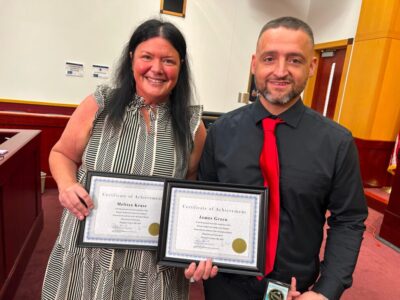Book banning isn’t about protecting children; it’s adult political posturing

Iwas an early reader as a child, and we always had a lot of books in our home. Even so, it was a big day when I got to bring home my very own library card.
We visited the Ames Public Library often, and my brother and I would later ride our bikes to North Grand Mall, where the library’s Bookmobile made regular visits.
Maybe because my reading skills were well beyond my grade level, I also advanced beyond what might be considered age-appropriate content today. I remember giggling over the smutty bits of Larry McMurtry’s “The Last Picture Show” on the playground in sixth grade. I honed a love of suspense with Ken Follett’s “The Eye of the Needle” in junior high and devoured “The Godfather” by Mario Puzo in high school.
I read lots of books that had been “banned” or censored in other places, ranging from “The Adventures of Huckleberry Finn” and “To Kill a Mockingbird” to Toni Morrison’s “The Bluest Eye.” Some, I discovered on my own. Others, like John Steinbeck’s “Of Mice and Men” and Nathaniel Hawthorne’s “The Scarlet Letter,” were required reading in class. These books have been criticized for mature themes, salty language and the like. But they were also windows into the lives of people I could never have imagined, let alone experienced.
To this day, the only book I read in high school that I recall having trouble finishing, let alone understanding, was “As I Lay Dying” by William Faulkner. I kind of wish my high school had banned that one, if only so I wouldn’t have had to write a book report on it.
Then there was a book that I first received in elementary school and even today have several copies in my home. It includes references to torture, murder, adultery, unwed pregnancy, fratricide, infanticide, incest, idolatry, sodomy (and Gomorrah). You see where I’m going with this. “The Holy Bible” also shows up on the banned book lists and has, throughout history, been used to justify all kinds of atrocities.
So often, it’s a matter of context — something that people who want to ban or censor books often have trouble grasping. They get all outraged about a few passages someone posted on the internet and march off with their torches and pitchforks to the school board without considering the broader message, artistic merit or educational potential of the entire work.
I suspect many of these parents who want to shield their precious darlings from LGBTQ content or race-related themes have no problem with exposing them to extreme violence and sexual content on television and in video games. Book-banning is rarely about protecting children. It’s about adult political posturing.
I haven’t read “The Hate U Give” or “The Absolutely True Diary of a Part-time Indian,” but I congratulate the Johnston School Board for refusing to remove the titles from classrooms. Parents, who are well-equipped to assess the maturity level of their own children, can opt out of having them read certain books in class. But they should not be allowed to decide what’s best for every other child.
Neither should state legislators, but it sounds like some of them may try. Iowa Senate President Jake Chapman, an Adel Republican, said at a Johnston school board meeting last month that teachers who give “obscene” books to students should face felony charges.
It’s already a serious misdemeanor to disseminate obscene material to minors. Nobody has suggested any of the teachers or librarians providing any of these controversial books to students be charged under the existing statute, probably because none of the works would qualify as “obscene” under U.S. Supreme Court standards.
Chapman, by the way, introduced legislation earlier this year to ban “censorship” by social-media companies that he says discriminate against conservatives. That bill didn’t pass in the GOP-controlled Legislature, but maybe Chapman’s colleagues will prefer censorship to penalizing so-called censors.
It’s too bad legislative analysts don’t have to include the cost to taxpayers of legal challenges when they estimate the cost of patently unconstitutional new laws. I doubt any bill that resembles Chapman’s rhetoric would become law, but it no doubt will be extremely successful as a fundraising appeal for certain politicians. That’s the real obscenity.
——
Editor Kathie Obradovich has been covering Iowa
government and politics for more than 30 years.
Book banning isn’t about protecting children; it’s adult political posturing




